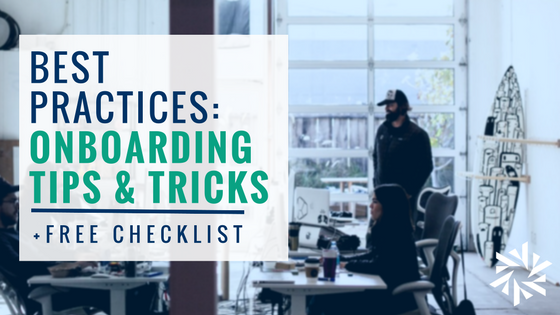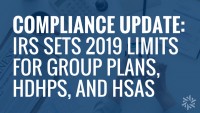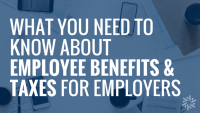
A well-designed onboarding strategy takes training and orientation to the next level. Onboarding processes extend well beyond the first few days or weeks of adjusting to a new position. Onboarding may even last for a year or more to cultivate a valuable long-term relationship between you and your employees.
The first 90 days of employment may be the most pivotal to building a strong relationship with your company, management, and co-workers. Employees who a part of a structured onboarding process are more likely to remain with your company after three years. Everyone will benefit when employee know more about your company’s goals and values, as well as learn how to do their job. When employees understand how they fit into your company’s culture it helps build your brand and reputation among your existing employees and other talented job seekers.

Pre-boarding
Great communication starts before their first day! Relieve some of the new job stress and help keep things running smoothly for their intended department.
-Welcome letter/email/phone call/text
-Overview of the company/industry
-First-day standard fare (schedule, employee handbook, manager’s information, dress code, etc)
-Get HR and Tax forms out of the way
-Make sure their desk, computer, email is ready for use
Don’t Waste Day One
We’ve all had that one job where we sat for our first day twiddling our thumbs waiting for our supervisor, filling out paperwork, or waiting for our computer to be set up. These types of experiences make employees feel less valuable, like a cog in a not-so-well-oiled machine. If your pre-boarding is on-point you can move on to successful day one onboarding initiatives.
-Best time for a tour
-Introduce them to their team and manager personally
-Set them up with a mentor (if you don’t have an official mentorship program this is a great time to start, or use this option for employees who may be a team of one)
-Highlight the importance of their communication with HR during the onboarding process
-Schedule/hold meeting with their manager to review expectations, discuss how and when their performance will be reviewed. Make sure they really understand how they fit into the company’s goals.
-Provide them with a fun/functional welcome gift. Company branded swag, a personal card from the owner, or even some of your own product are all easy and brand-conscious ideas.
Chart Their Course
Discussing new employees’ path within your company early-on communicates their value and your company’s support. Clearly communicate goals, discuss time frames, and listen to their concerns.
-Set aside a time to meet with your new employee for a career path discussion after their first few weeks.
-Loop in their manager so they can check on the new employee’s progress and communicate any needs or issues.
-It is important to start incorporating your new employee into both short and long-term projects to build their sense of contribution and loyalty to the company.
-Touch base frequently to ensure your new employee is comfortable with their job function and are happy with their work, manager, schedule, etc. This could be an in-person meeting or a short survey they can complete at their convenience.
Use a Checklist
There’s a lot to do with a successful onboarding program, stay on track with a handy checklist. Keep a copy in each employee’s records for easy recording. We’ve created a handy checklist that is a great place to start, download below!
Survey Regularly
You’ll need data to back up the worth of your onboarding program. Good times to survey are after the first 90 days (a common probationary period), when the onboarding process is finished, then survey bi-annually for all employees. Early surveys will be important so new employees can accurately reflect on their onboarding experience. Ongoing surveys are valuable to gain insight for veteran employees on new initiatives to continually adapt your onboarding program. Survey questions may address topics such as: hiring process, brand awareness, first day, first 90 days, etc.

Successful onboarding can result in happier employees and reduction in turnover. Increased productivity and less repeat recruiting will save your business time and money. The better experience you provide to your new employees equals a better reputation, internally and to new candidates. Jumpstart your onboarding program today – download our checklist below!



